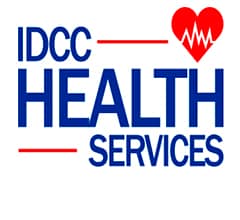Have you ever pondered about the various professionals buzzing around a cardiac care unit? Among these experts, two roles often get intertwined in people’s minds: cardiologists and heart surgeons. At the close of this guide, we’ll unravel the enigma that often surrounds their roles.
Learn the distinction. If you need heart care, trust our Cardiology Doctors in Brooklyn. Schedule your consultation now to prioritize your heart health.

1. Cardiologist: The Heart Detective
Who is a Cardiologist?
A cardiologist, in simple terms, is a heart doctor. They specialize in diagnosing, treating, and preventing diseases that affect the heart and its connected vessels.
Role of a Cardiologist
Diagnosis
Using a series of tests such as EKGs, echocardiograms, and blood tests, cardiologists diagnose heart conditions.
Treatment
Post-diagnosis, cardiologists recommend a treatment plan. This could be lifestyle changes, medications, or specific procedures like catheterization.
Prevention
Education about heart-healthy habits is also part of their job.
Sub-Specialties
- Electrophysiology: Focus on heart’s electrical activity.
- Interventional cardiology: Primarily handle catheter-based treatments.
When to see one?
For symptoms like chest pains, difficulty in breathing, or high blood pressure, a visit to a cardiologist is advisable.
2. Heart Surgeon: The Heart Mechanic
Who is a Heart Surgeon?
Heart surgeons, as the name implies, conduct surgeries on the heart and its adjoining vessels.
Role of a Heart Surgeon
Pre-operative Assessment
Before the surgery, heart surgeons evaluate the patient’s condition and chalk out a surgical plan.
Surgical Procedures
From bypass surgeries to heart transplants, heart surgeons handle intricate operations.
Post-operative Care
Post-surgery, they ensure the patient’s recovery and monitor for complications.
Types of Surgeries
- Coronary artery bypass grafting (CABG)
- Valve replacements
- Aneurysm repairs
When to see one?
If a cardiologist recommends surgery for conditions like blocked arteries or valve issues, you’ll be directed to a heart surgeon.
Spotlight: Cardiac Care in Brooklyn
- Cardiology Doctors in Brooklyn NY: They’re famed for their in-depth knowledge and patient-centric approach.
- Cardiology Brooklyn: Home to state-of-the-art facilities dedicated to holistic heart care.
- Cardiology Downtown Brooklyn: An emerging hub of top-tier cardiologists and heart surgeons.
In Conclusion: Cardiologist vs. Heart Surgeon
Imagine this scenario: If your heart was a car, a cardiologist would be like your regular mechanic, diagnosing issues and suggesting minor fixes. On the other hand, a heart surgeon would be your specialized mechanic, the one you’d approach when your car requires a major overhaul or an engine replacement.
Your heart is a complex and vital organ. While a cardiologist and a heart surgeon both aim to keep it running smoothly, their methods differ. By understanding their roles, you can make informed decisions about your heart health.
Remember, it’s always best to consult with these specialists directly for concerns about your heart. After all, every heartbeat matters.
